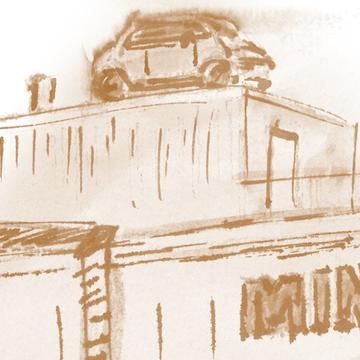The Cowley Car History Project

(c) Graham Lockey
The Cowley Car History Project will be a website dedicated to all aspects of the history of car assembly in Oxford from the founding of Morris Motors in 1913. The website will contain a variety of textual and visual resources, and its infrastructure will have introductions, guides and links to make it easy for different types of readers to navigate its contents and locate relevant information. In due course, it will be possible for external users to upload to the site images of letters, people or other items -- especially of the cars themselves - going back more than a century.
Site resources
A central aim of the Project is to provide a digital archive of materials -- such as interviews, images, articles, online histories, books, maps and in-house publications. We are particularly interested in publishing old maps and creating new dynamic representations of Cowley and its surrounding areas that show how the growth of the factory happened in tandem with the often-breakneck development of housing, schools, shops and transport infrastructure.
Initially this is a University-based initiative, conceived as part of the History Faculty’s Community History Project managed by Dr. Priya Atwal. The academics based on the project are concerned with topics such as: the life and work of William Morris (Lord Nuffield); the role of immigration in supplying workers for the factory since the early 1920s, the role of women as workers in the faculty and as wives, mothers and daughters of workers; the design and manufacture of cars from the production of the Bullnose Morris in 1913; the organisation and growth of the factory; the social and cultural impact (in particular) of the Morris Minor and the Mini, and the redevelopment of the site by BMW to create Plant Oxford.
Nevertheless, the main audience for the Project will be local people. The resources on the site will be of interest to schools, local historians and general audiences, and we are keen to work with educational and cultural organisations in Oxford and beyond to make the online resources as exciting and useful as possible. Where feasible there will be introductions to these materials, with links to other parts of the website and to external websites.
We also want to ensure that people with deep personal connections to the factory’s history are at the forefront of shaping this ground-breaking new initiative. Most of the Project Team is made up of individuals working in the local community. Some of these individuals were employees of the factory, while others are independent historians or represent local organisations. In due course the Website will be largely managed by people based outside the university, although the university will offer support and advice where needed.
We have already had many fruitful discussions with film-makers and TV companies, who have hundreds of hours of footage, and we hope that we can digitize some or all this material and make it available as part of the website.
We are committed to creating a comprehensive catalogue that will list relevant printed and digital documents in local archives, notably those at the Oxford Bus Museum at Long Hanborough, the Morris Motors Museum at the British Motor Museum at Gaydon, and in-house materials at Plant Oxford.
We are committed to creating resources that will be of great interest to local people and future historians. We are especially keen to record filmed interviews with people who worked at, or who were associated with the factory in any capacity. These include wives, children, secretaries, shop-floor workers, designers, Trade Union officials, managers and anyone else whose personal stories can shed light on the history of car-manufacture in Oxford.
Steering Group
We are in the process of creating a Steering Group that will guide the initial stages of the Project. To this end we are identifying and bringing on board interested parties from the local community, whose experience will be vital in helping us to organise the website in its early form.
The establishment of an open, mutually-supportive relationship between the University and diverse members of the local community is key to the success of the Project: both to ensure that local people and organisations feel confident and comfortable in sharing their stories and archives with the new website; and to give community members a sense of ownership and an opportunity to contribute to the design and management of the Project.
As things stand, this is a holding page for information only, and we aim to have a fully-functioning website by the end of 2025. Although the amount of data available at the start of the Project will inevitably be thin, we hope that it will soon grow to become one of the outstanding resources of its kind.


